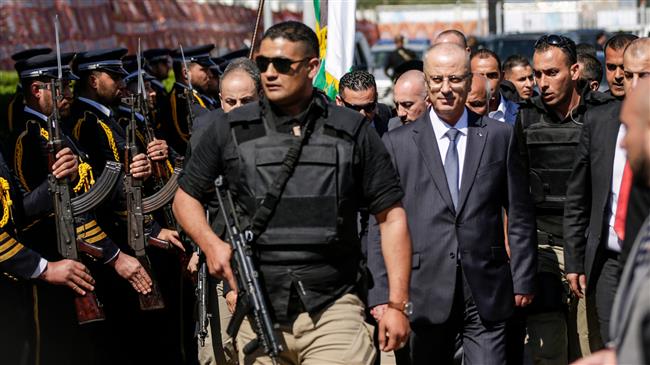
RNA - Tawfeeq Abu Naim, the head of the Hamas security services in Gaza, said in a statement on Wednesday that the investigation would be widened to help reveal the circumstances around the roadside bomb attack that targeted Hamdallah's convoy shortly after he entered Gaza a day earlier.
Six security guards were injured in the attack, which left Hamdallah, a senior figure of Palestinian President Mahmud Abbas's Fatah party, uninjured.
Hamas, the ruling force in Gaza since 2007, agreed as part of a deal in October to hand over administrative power to the Fatah-dominated Palestinian Authority in the Israeli-occupied West Bank. However, the transition is yet far from over.
Abbas said on Tuesday that Hamas should be held responsible for the attack on Hamdallah’s convoy, adding that the resistance movement is still the de facto power in the strip.
Hamas authorities, however, have indicated that the attack came from those opposed to reconciliation. The interior ministry in Gaza said on Wednesday that a “high-level investigative committee” had been tasked to deal with the situation. It has yet to elaborate on further details on the investigation and the identity of the suspects.
According to Press TV, Hamdallah said the attack on his convoy would not end his government's commitment to continue with reconciliation. However, he reiterated previous calls by the Palestinian Authority for a full handover of power by Hamas. “Without security there won't be a government,” said Hamdallah, adding, “We are talking about internal security, the police and the civil defense.”
Hamas agreed to reconciliation mainly to help ease humanitarian concerns about the situation in Gaza, a densely populated enclave on the Mediterranean, which continues to suffer from a crippling Israeli siege. The resistance movement has resisted Israeli aggression over the years while fighting three wars that have inflicted major losses on the regime in Tel Aviv.
847/940